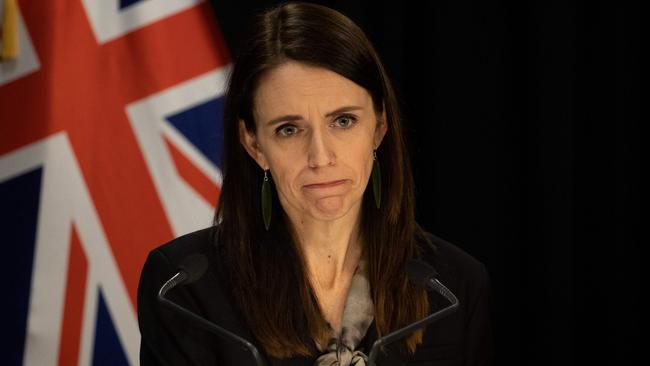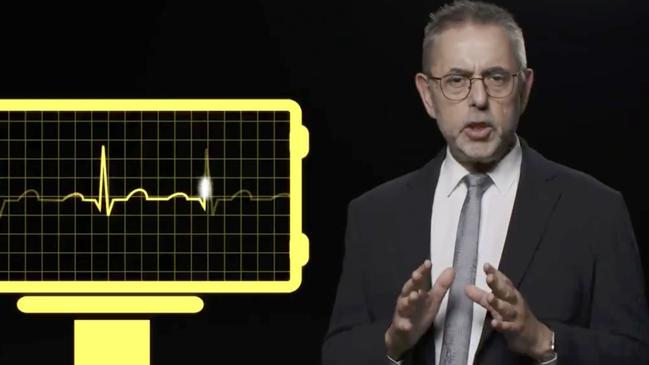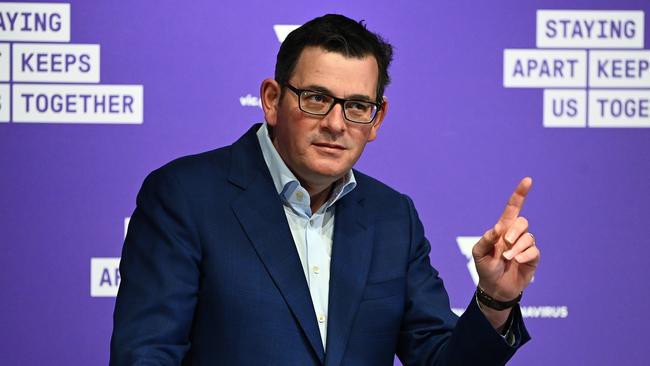Why Jacinda Ardern’s COVID-19 elimination strategy was doomed to fail
New Zealand has had its first coronavirus cases in more than 100 days and Auckland is back under lockdown. It’s proof that you can’t eliminate COVID-19, you have to learn to live with it
Opinion
Don't miss out on the headlines from Opinion. Followed categories will be added to My News.
- World reacts to New Zealand’s new coronavirus lockdown
- The big problem with Joe Biden’s VP pick Kamala Harris
When Jacinda Ardern made the decision to lock down New Zealand – hard – in an effort to eliminate COVID-19 from her island nation, the Australian left cheered: If only we went down the same road, we likewise listened to the experts, we too could get rid of coronavirus and, perhaps, get back to our normal lives.
But now, New Zealand stands as a cautionary tale about the nature of coronavirus: No matter how hard you try to fight the virus by smashing businesses, civil liberties, and lives, the thing always seems to find a way to come back.

After 102 days of nil community transmission, on Tuesday the country announced that it had discovered four new cases. And as a result, New Zealand was going back under the doona, with Auckland once again locked down.
So much for all those in Australia who said that if only we’d pursued even stricter lockdowns (and, by extension, destroyed more jobs and more businesses, delayed more elective surgeries and cancer screenings, and pushed more peoples’ mental health to the breaking point) we, too, could have beaten the virus.
In July, Dr Bill Bowtell from UNSW’s Kirby Institute told the ABC’s Radio Melbourne that it was time to “go for it” and pursue a strategy of complete elimination in Australia.
Bowtell’s colleague, Gregory Dore (also an infectious diseases specialist at St Vincent’s Hospital in Darlinghurst) penned an op-ed for the Nine newspapers saying that he, too was a convert to the elimination camp.
“Having watched the COVID-19 elimination bus do its rounds with a few rowdy passengers, I have decided to flag it down and climb aboard”, he wrote.

Dr Norman Swan, who early on in the pandemic set himself up as a one-man health ministry in exile against the Morrison government’s messaging, hopped on the bus so early he got a seat right up the front.
In April he tweeted, “My prediction? We’ll hide behind a single source of modelling, not focus on elimination of spread and struggle for months as a consequence. NZ is relying on public health rather than modelling.”
Ah yes, public health.
Well, that sure did work out well, didn’t it?
Happily Australia, and particularly NSW, did not succumb to the blinkered mentality of that same public health lobby which, like single-minded generals, care only for destroying the enemy, and damn the collateral damage.
The one exception to this is Victoria which had the most stringent restrictions the first time around (even the super-spreading high contact sport of golf was banned) and took the longest to bring its case numbers down – and which is now in a “Stage 4” lockdown.

As the old defenders of communism say every time someone else gives it a go, “Surely, it will work … this time”.
The point of all this is that we will eventually have to find a way to live with this thing.
NSW has, so far, done a pretty decent job, perhaps the best of all the states or territories, in remaining open while managing the steady background noise of new cases and occasional clusters, as appears to be happening now.
But Gladys Berejiklian in particular will have to find her nerve, trust her contact tracers, and resist the urge to panic and shut the state down when the inevitable clusters and outbreaks occur.
Indeed, as reports increasingly suggest that Sweden, the UK, and parts of New York City have achieved herd immunity – and that because of COVID-19’s similarities to other coronaviruses, this immunity may kick in far earlier than once suspected – it may be that going too hard on suppression may set us up for failure in the long run, keeping us locked off from the rest of the world as it opens up.
But the ultimate lesson of New Zealand is a simple one: No bubble lasts forever.
Eventually, it has to burst.

